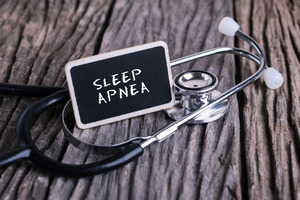
Between the loud snoring that keeps your partner up and the tiredness you experience during the day, you may see sleep apnea as more of an annoyance than anything. However, the fact of the matter is that the disorder can take quite a toll on your overall health – and that might ultimately influence your life expectancy. Your sleep dentist is here to explain why sleep apnea can lead to a shorter lifespan and how treating it can help you live longer.
What Exactly is Sleep Apnea?
Sleep apnea is a disorder that affects your breathing while you’re asleep. It is often the result of the airway becoming partially or fully blocked. The consequence of said blockage is that your breathing is repeatedly interrupted, and the lack of oxygen causes your brain to force your body to wake up in an effort to get some air. While such awakenings are brief, they still interrupt the sleep cycle and can prevent you from getting quality slumber.
What is the Link Between Sleep Apnea and Life Expectancy?
Studies have shown that people with untreated sleep apnea have a significantly higher mortality rate. This is partly due to the fact that sleep apnea can easily lead to high blood pressure, which in turn can increase your risk for life-threatening cardiovascular issues such as heart attacks and strokes.
On top of that, if you have sleep apnea, you may be more likely to get into an accident while driving. The lack of quality slumber can leave you more prone to falling asleep behind the wheel, and it can also make it more difficult to maintain your focus in general, which can affect your ability to make split-second decisions when they count the most.
How Can You Treat Sleep Apnea?
Fortunately, if you are proactive about having your sleep apnea treated, you can potentially avoid the worst of the life-threatening consequences. Once you have had your sleep apnea diagnosed, you can start seeking out an appropriate way to manage it.
One way to treat sleep apnea is to use a CPAP machine, which can deliver a constant stream of air down your throat to prevent obstructions. However, some people stop using their CPAP machines due to finding them too uncomfortable. If you are CPAP intolerant, you can talk to your sleep dentist to see if you’re eligible for a customized oral appliance – a simple device that adjusts the position of your jaw and tongue to keep your airway open.
Don’t let sleep apnea put your life at risk. As soon as you have any reason to think that you are suffering from sleep-disordered breathing, you should get in touch with a professional who can help you take the right steps to have the problem diagnosed and treated.
About the Author
Dr. Glenn Thompson went to the Tufts University School of Dental Medicine in Boston for his dental degree. He is currently solely focused on the area of dentistry that deals with treating sleep apnea. He’s able to offer comfortable oral appliances for keeping sleep apnea symptoms under control. To schedule a consultation with Dr. Thompson at Downtown Denver Sleep Solutions, visit our website or call (303) 377-5337.